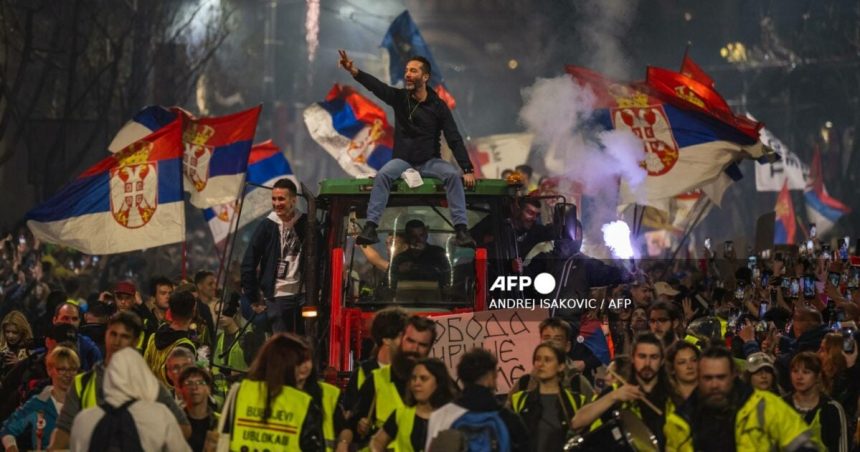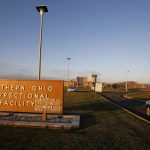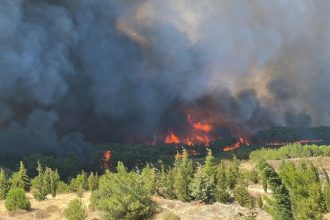As thousands of students march to the city that birthed Serbia’s year-long protest movement on Friday, activists and demonstrators told AFP about a turbulent year that has profoundly changed their lives.
For them, the fatal collapse of a train station canopy in the city of Novi Sad, where a massive rally is expected to mark the anniversary on Saturday, drove them to abandon studies and fight for change.
The government has accused their movement of being a foreign-funded coup, and dismissed calls for snap elections, while the rallies have exposed deep political fault lines in Serbia — but the activists have endured.
Here, they share their stories of the protest movement.
“Whatever happened, I would have acted the same,” said Nikolina Sindjelic, 23.
Sindjelic is a political science student and activist who has faced relentless attacks from pro-government media since she accused a police commander of assaulting and threatening to rape her after she was arrested in protests in August.
“The messages can be truly terrifying — from death threats to warnings that I’ll be forced to leave the country,” she said.
After she went public, explicit images of her were published online and broadcast on national television by pro-government media.
“You have to watch every step you take.”
“I could have been in their place. Just one train earlier, and that could’ve been me,” drama student Nikola Boskovic, 28, said, reflecting on his own train journey minutes before the tragedy.
The student remembers the “nervous and uneasy” feeling on board as news of the 16 people crushed in the train station roof collapse began to emerge.
“The canopy collapsed because of corruption,” he said.
“From that day, change began… it won’t be forgotten.”
“It’s absurd — to be labelled a terrorist in your own country,” said 20-year-old physics student Stefan Tomic, who faces charges of “inciting the overthrow of the constitutional order”.
His case is linked to WhatsApp messages between fellow student protesters — accused of plotting to overthrow the government.
The messages, published by a government-aligned tabloid, allegedly outlined plans to storm government buildings.
“Of course, it’s all false,” Tomic said.
“There’s still a lot of fear and sadness. It hurts to think about what I went through, how I was treated, what they called me.”
“I cannot feel safe while this regime is in power,” activist Mila Pajic said, who has not returned to Serbia in seven months after she was charged with sedition offences.
She and 11 others were charged after pro-government media aired a secretly recorded meeting of political activists she had attended ahead of a large demonstration.
The activists are alleged to have discussed preparations to call for a transitional government during the Belgrade demonstration and to storm the national television station building.
Pajic, speaking from an undisclosed location, now fears returning to Serbia and risks facing “a politically fabricated trial aimed solely at removing us from the streets and silencing us as activists.”
Although the student movement distanced itself from the meeting she attended, they protested against the persecution of activists.
“I belong to a different group that fights for justice and democracy in Serbia. The students, as another group, are fighting for the same goal,” she said.
AFP also reached out to supporters of President Aleksandar Vucic, who have also been protesting in recent months, but they did not respond to interview requests.
AFP









